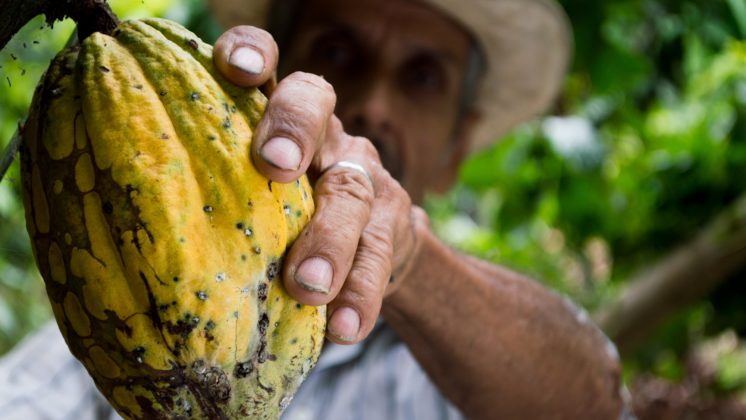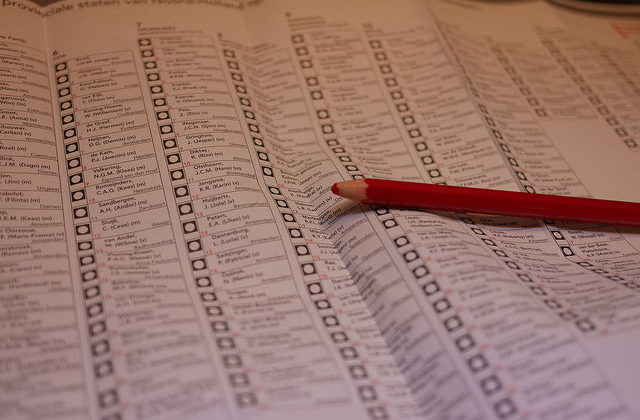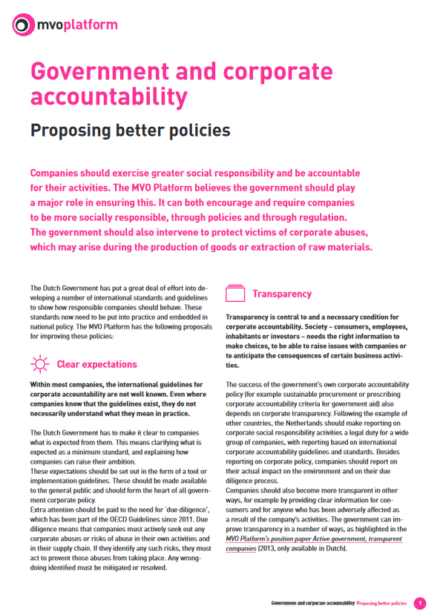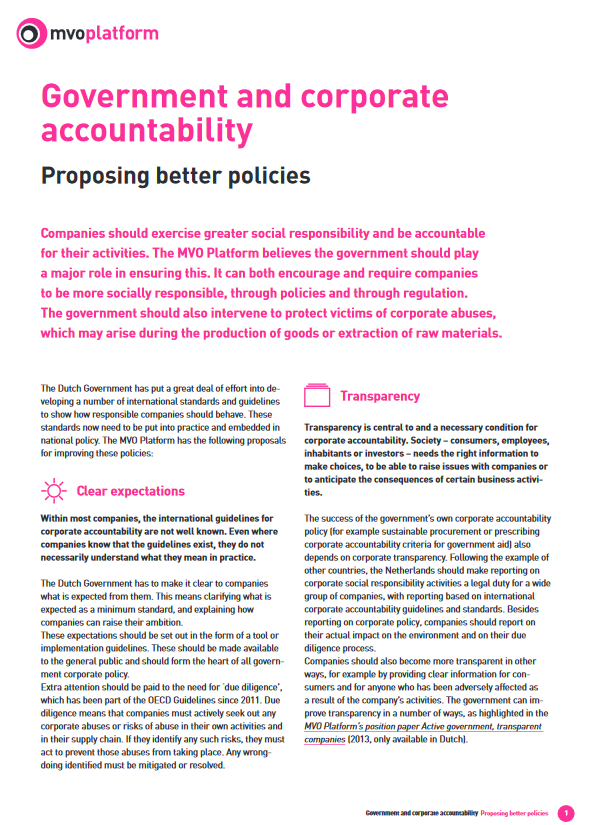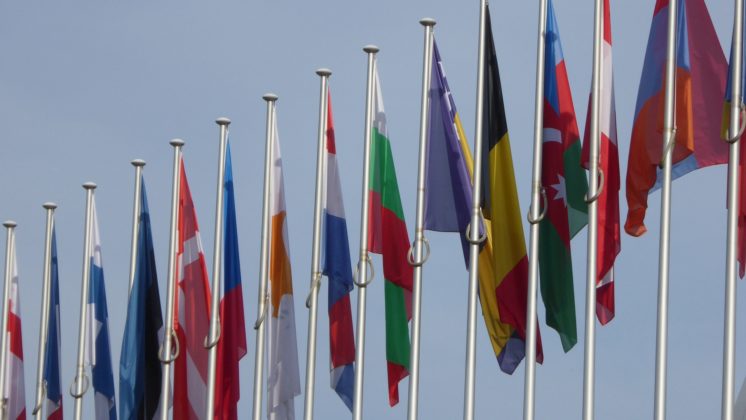The UN Guiding Principles on Business and Human Rights (UNGPs) explicitly mentions procurement policies as a tool for governments to encourage the protection of human rights in international supply chains. The Netherlands has committed to implement the UNGPs; however, it still does not apply social criteria in public tenders.
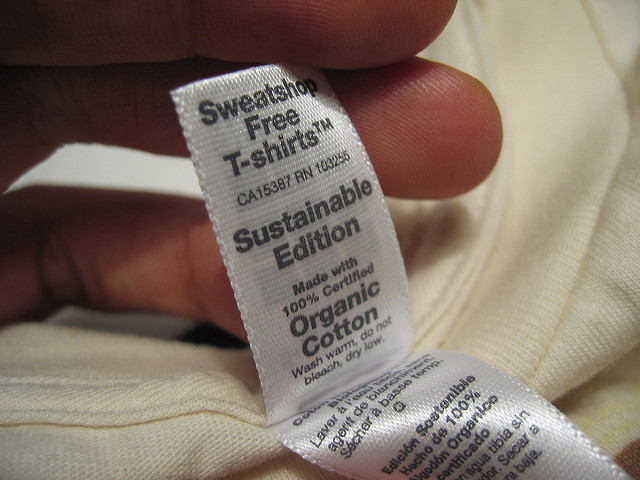
Brief history
In 2005, the Dutch government established goals for sustainable public procurement: by 2010 all central government purchases would be 100 % sustainable. Provinces and municipalities would follow suit later. However, the government only focused on environmental criteria, not on issues related to human rights or responsibility in the supply chain. The Dutch government subsequently developed ‘social criteria’, which incorporated ILO-standards, in 2012. National governmental bodies have been required to apply these social criteria since 2013.
Lack of action and ownership
Realising these good intentions and putting the policy for sustainable procurement into practice appears to have been difficult. Supply chain risks overseas are rarely considered in the purchasing process. This has been demonstrated by SOMO who found that only 3 of the 25 tenders for high risk products (eg phones, clothing, coffee and natural stone) referred to these social criteria. A policy review conducted by the consultancy Berenschot shows that sustainable purchasing policies are rarely applied, and even where they exist, they are not followed in a meaningful way. A lack of ownership at different administrative levels, starting with the Dutch government, was identified as one of the main obstacles.
Reasons for optimism
Following several parliamentary questions, the current government promised to engage with municipalities, provinces and water boards to promote socially responsible purchasing. According to the National Action Plan on Business and Human Rights, all companies that supply the government would have to comply with the UNGPs. Various departments from the Ministries of Interior, Environment, Economic Affairs and Foreign Affairs appear to be working on new goals for sustainable procurement and an action plan will be sent to the parliament before the end of the year. It is expected to also contain goals on corporate accountably.
Strengthening the standards
These new commitments have given the MVO Platform cause for optimism. However, there is still a need to advocate for existing procurement standards to be strengthened:
- Bring the policy in line with the OECD Guidelines and the UNGPs
- Require all suppliers to respect human rights through due diligence steps
- Ensure even greater social responsibility in high risk sectors
- Include the social criteria in the award phase of purchases (as well as the contract phase).
